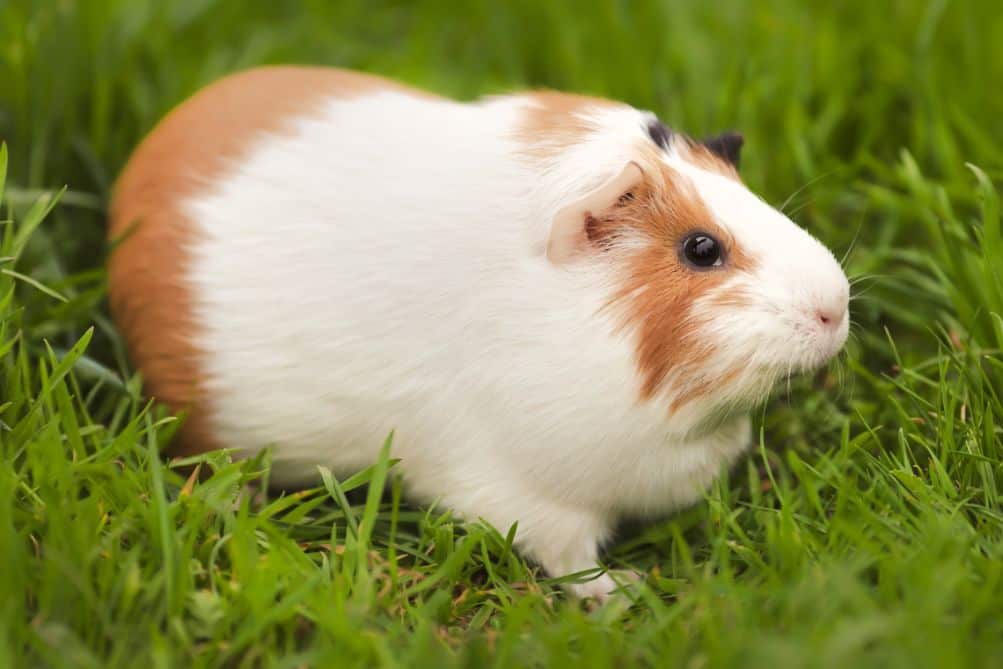Guinea pigs are cute, cuddly, and make great pets for families. But, have you ever wondered what their natural role is in the animal kingdom?
Are they hunters or prey? In this blog post, we will explore the natural predator-prey relationship of guinea pigs and how it affects their behavior in the wild and as domesticated pets.

What is a Prey Animal?
A prey animal is an animal that is hunted and killed for food by another animal. Prey animals have certain characteristics that help them to avoid being caught by predators, such as a keen sense of smell, good eyesight, and the ability to run or hide quickly.
They are typically smaller than their predators and have a faster reproductive rate to compensate for the losses caused by predation.
The Natural Habitat of Guinea Pigs
Guinea pigs, also known as cavy or cavia porcellus, are native to the Andes Mountains in South America. They are social animals that live in groups in the wild and are active during the day. In their natural habitat, guinea pigs have several predators, including foxes, coyotes, snakes, and birds of prey.
To protect themselves from predators, guinea pigs have several defense mechanisms. They have good eyesight and can detect movements from a distance. They also have a keen sense of smell and can detect predators by their scent. When threatened, guinea pigs will run to their burrows, which they dig in the ground or make in dense vegetation. They also make alarm calls to warn their group of danger.
Predators that prey on Guinea Pigs
The guinea pigs that we keep as pets, cavia porcellus, is unfortunately extinct in the wild. When they still roamed the plains of the Andes Mountains they had a variety of predators that preyed on them. Among them were:
- Birds of prey: Hawks, eagles, and owls are some of the common birds of prey that hunt guinea pigs.
- Wild cats: Wild cats such as ocelots, jaguars, and pumas are also known to prey on guinea pigs.
- Snakes: Some species of snakes, such as the boa constrictor and the anaconda, may also hunt and eat guinea pigs.
- Foxes: Foxes are also known to hunt guinea pigs in the wild.
Domesticated Guinea Pigs: Are They Still Prey Animals?
Domesticated guinea pigs are bred for their docile nature and make great pets for families. However, their domestication has changed their behavior and made them less adept at avoiding predators. Domesticated guinea pigs are not exposed to the same predators as their wild counterparts and may not have the same instincts to protect themselves.
Despite their domestication, guinea pigs are still considered prey animals. They are small, social animals that are easy prey for larger animals like dogs and cats. It is important to provide a safe and secure environment for domesticated guinea pigs to minimize their risk of being attacked by predators.
Signs of Fear and Stress in Guinea Pigs: What to Look For
Guinea pigs can experience fear and stress in different situations, such as when they are introduced to a new environment or when they are handled roughly. When guinea pigs are stressed, they may show several signs, including:
- Hiding
- Refusing to eat or drink
- Teeth chattering
- Hair standing up
- Tense posture
- High-pitched squeaking
It is important to recognize these signs and provide a safe and stress-free environment for guinea pigs. A stressed guinea pig is more susceptible to illness and may have a shorter lifespan.
Providing a Safe and Secure Environment for Guinea Pigs
A safe and secure environment is essential for the health and well-being of guinea pigs. Providing a comfortable and stress-free habitat can help to minimize the risk of illness and behavioral problems. Here are some tips for creating a safe and secure habitat for guinea pigs:
- Provide a spacious cage or enclosure with plenty of room to move around
- Use bedding that is safe and comfortable for guinea pigs, such as paper-based or wood shavings
- Provide fresh food and water daily
- Offer toys and activities to keep guinea pigs mentally stimulated
- Keep the environment clean and free of hazards, such as sharp objects or toxic substances
Conclusion
In conclusion, guinea pigs are prey animals that have several natural defense mechanisms to protect themselves from predators. Domestication has changed their behavior, but they are still vulnerable to attacks from larger animals. By providing a safe and secure environment, we can help to minimize the risks and ensure the health and well-being of our beloved pets.
- How Long Do American Eskimo Dogs Live? Important Factors and Care Tips - September 29, 2023
- Do American Bulldogs Need Grooming? Essential Tips and Care Guidelines - September 29, 2023
- Do Bengal Cats Enjoy Playing? Essential Tips for Keeping Them Active - September 29, 2023